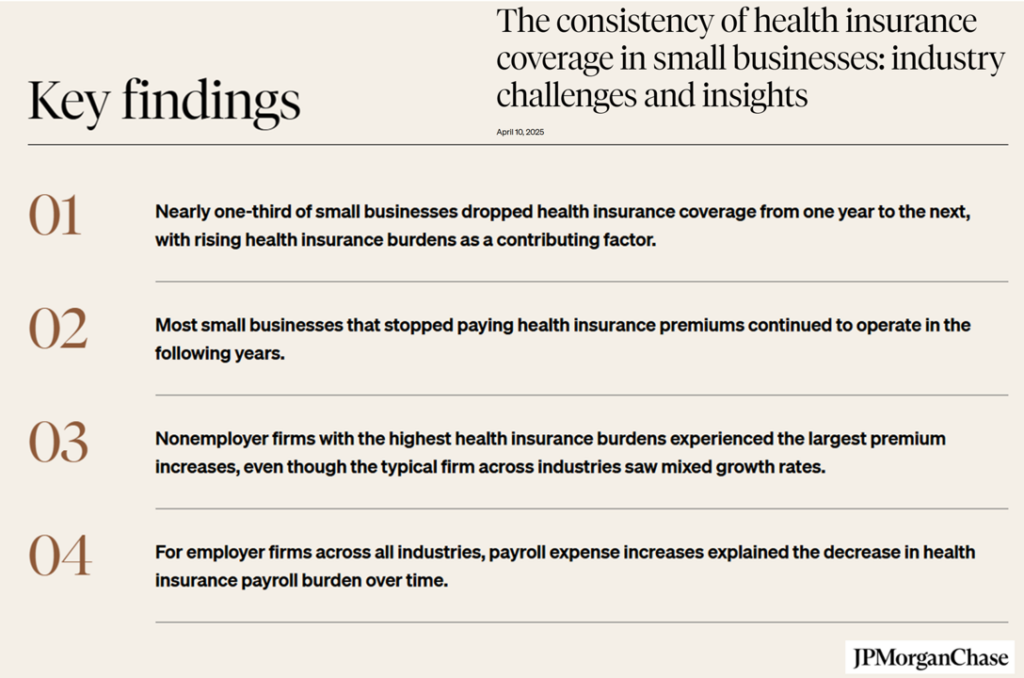Working-age people in the U.S. depend on their employers to provide health insurance; just over one-half of people in America receive employer-sponsored health insurance.
But a concerning signal has emerged that calls into question how sustainable the uniquely American employer-sponsored health plan model is: that is that one in 3 small businesses in the U.S. stopped covering health insurance after the worst of the pandemic health effects in 2023 as the companies payroll expenses continued to increase, a statistic raised in The consistency of health insurance coverage in small business: industry challenges and insights, a report from the JPMorganChase Institute (JPM).

In the midst of non-stop “Breaking News” and global and domestic turmoil, you might have missed this report’s launch on April 10. But its 38 pages signal findings that should concern all stakeholders in the U.S. health care industry — especially people who work for smaller businesses and entrepreneurs who have received the benefit of a health insurance benefits at work.
JPM found that among the small employers who dropped paying for health insurance premiums, most continued to operate their businesses. JPM nonetheless notes that financial strains persist for many small businesses, with EBRI’s research pointing to a near-record low in 2023 of employers providing health benefits (link here to EBRI’s October 2024 study). 
This bar chart from JPM’s report details the industry sectors among the small businesses that discontinued health insurance in 2023.
Overall, the “all” purple-blue bar indicates that 26% of the firms discontinued health insurance premiums, from a low of 23% of companies in metal and machinery and 24% in health care services to a high mark of 30% for firms providing personal services, and 29% in construction as well as repair and maintenance industries.

Consider this sensitivity analysis where JPM calculates what a 10% increase in a health insurance burden does to the likelihood of dropping premium payments: on average, that 10% increase would lead to 1.3% of employer firms dropping health insurance across all industries.
But check out the more granular sensitivity by industry sector: we see that personal services and restaurants as employers were much more sensitive to an increase in health plan premiums than retail or professional services.
Health Populi’s Hot Points: The JPM findings come from another financial world — that is, the world as it existed under President Biden in 2023. The JPM analysis occurs in our current world, under the current (changeable) tariff regime under President Trump where small businesses will be impacted, as well as large ones, relative to tariffs levied on a broad range of supplies, inputs, tools, and finished goods from around the world.
As the cost of goods can increase due to the impacts of tariffs, jobs can be cut as well as benefits re-structured or, in the case of health insurance premiums, discontinued for those who lose their jobs as well as those workers who continue to work for the financially-stressed companies.
Bottom-line is that tariffs do not only have direct impacts on the cost-of-goods made and sold: they will have some impact, as well, on the cost and coverage of health insurance for employers who have skin in the employer-sponsored health insurance game, both large companies as well as smaller ones.
The post Health Insurance Coverage Among Smaller U.S. Businesses Is Eroding: A Signal From JPMorganChase appeared first on HealthPopuli.com.





